6 Rags-to-Riches Millionaires
From Oprah Winfrey to Steve Jobs to J.K.

Profit and prosper with the best of Kiplinger's advice on investing, taxes, retirement, personal finance and much more. Delivered daily. Enter your email in the box and click Sign Me Up.
You are now subscribed
Your newsletter sign-up was successful
Want to add more newsletters?

Delivered daily
Kiplinger Today
Profit and prosper with the best of Kiplinger's advice on investing, taxes, retirement, personal finance and much more delivered daily. Smart money moves start here.

Sent five days a week
Kiplinger A Step Ahead
Get practical help to make better financial decisions in your everyday life, from spending to savings on top deals.

Delivered daily
Kiplinger Closing Bell
Get today's biggest financial and investing headlines delivered to your inbox every day the U.S. stock market is open.

Sent twice a week
Kiplinger Adviser Intel
Financial pros across the country share best practices and fresh tactics to preserve and grow your wealth.

Delivered weekly
Kiplinger Tax Tips
Trim your federal and state tax bills with practical tax-planning and tax-cutting strategies.

Sent twice a week
Kiplinger Retirement Tips
Your twice-a-week guide to planning and enjoying a financially secure and richly rewarding retirement

Sent bimonthly.
Kiplinger Adviser Angle
Insights for advisers, wealth managers and other financial professionals.

Sent twice a week
Kiplinger Investing Weekly
Your twice-a-week roundup of promising stocks, funds, companies and industries you should consider, ones you should avoid, and why.

Sent weekly for six weeks
Kiplinger Invest for Retirement
Your step-by-step six-part series on how to invest for retirement, from devising a successful strategy to exactly which investments to choose.
From Oprah Winfrey to Steve Jobs to J.K. Rowling, entrepreneurial success stories are the stuff from which American dreams are made. Much like these famous names, the six self-made millionaires we’re profiling have one thing in common: Thanks to hard work, determination and sound advice from mentors, friends and family, they’ve been able to build thriving businesses from the ground up.
The rise to the top can be bumpy. In fact, some of the entrepreneurs we talked to were homeless during the early years of their companies. That’s why they all agree that it’s important to help others in need. All, including Radio One’s Catherine L. Hughes and Life is good co-founder Bert Jacobs, give back to the community by volunteering time, donating to charitable organizations or running their own charities.
Learn how these six diverse entrepreneurs -- from a t-shirt designer to a media mogul -- turned meager beginnings into multimillion-dollar success and what advice they offer to budding business tycoons who hope to follow in their footsteps.
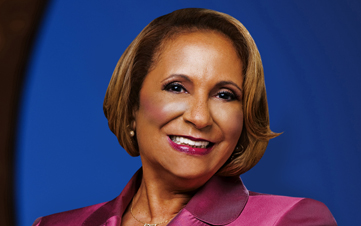
Catherine L. Hughes
Age: 64
Occupation: Founder and chairperson, Radio One
Advice to young entrepreneurs: \"Sometimes the ones who love you the most will give you the worst business advice.\"
By conventional standards, Hughes wasn’t destined to build a successful multimillion-dollar media company. She was a teen mom by 16 and never graduated from college, but had brief stints at area universities in her hometown of Omaha, Neb.
Despite her limited formal education, Hughes, who credits publishing legend John H. Johnson as one of her mentors, worked her way up at Omaha’s KOWH radio starting in 1969 before heading to the nation’s capital to become a lecturer at Howard University. In 1975, she became general manager for the university’s radio station, WHUR-FM. By 1979, she bought her first radio station, WOL-AM in D.C., with her then-husband and founded Radio One a year later.
Those early years were rough. Hughes, who was divorced by then, slept with her son on the floor of her radio station because she couldn’t afford to live anywhere else. “My mother tried her best to talk me out of the radio business because of that,” Hughes recalls. It’s for this reason that she advises young entrepreneurs to be wary about who they divulge their challenges to -- even family. “If I had listened [to my mother], I would be a government employee right now and there would be no Radio One.\"
Thirty-two years later, in addition to the radio company, Hughes’ empire includes her television network TV One and several interactive ventures, including NewsOne.com and HelloBeautiful.com. Her charitable efforts include serving as a board member and the main benefactor for the Piney Woods School, a boarding school located in Piney Woods, Miss., that serves students from financially strapped families.
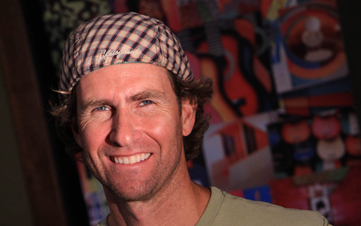
Bert Jacobs
Age: 46
Occupation: Co-Founder and CEO, Life is good
Advice to young entrepreneurs: \"Try to shoot for a timeless business.\"
You’ve probably seen the beret-wearing, smiling face of “Jake,” the Life is good logo, on the company’s tee shirts and products. Co-founders Bert Jacobs and his brother, John Jacobs, 43, started peddling their tee shirts on the streets of Boston -- going door-to-door at college dorms and sleeping in their van to save money -- in 1989. It would take nearly six years, however, before their shirts finally caught on with consumers, thanks to “Jake.”
The logo, which is infused with optimism, was created after a conversation about how the world was slammed with constant negativity. It became an instant hit. Now, the New England-based company has revenues in excess of $100 million, and each year more of it goes toward their charity, Life is good Kids Foundation, which helps children overcome life-threatening challenges.
“In the beginning, we made every business mistake in the book,” says Bert. The brothers didn’t have a business plan or growth strategy -- a formula for disaster, if you go by what’s taught in business school. Bert credits part of their success to listening to their friends and customers as informal focus groups, rather than “experts.” He advises budding entrepreneurs to: “Try to shoot for a timeless business that will work through good times and bad.”
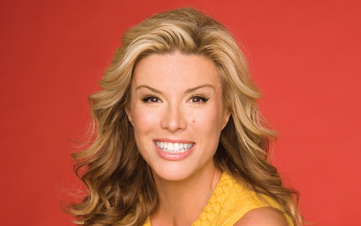
Ali Brown
Age: 40
Occupation: Entrepreneur, business consultant and publisher, AliBrown.com
Advice to young entrepreneurs: \"It\'s important you seek out other business owners for information, advice, support and resources.\"
Fed up with her dead-end job at a New York City ad agency, Brown decided to quit in 1998. Armed with her brother’s hand-me-down computer, she launched her first marketing agency, AKB Communications, from her kitchen table.
While having her own business was exciting, the uncertainty of self-employment had its challenges. Brown remembers all too well maxing out credit cards and draining her bank account to stay afloat in the early days. One night in particular, she tried to withdraw $20 from an ATM but was denied because her balance was only $18.56. Thirteen years later, thanks to her hard work and perseverance, Brown has achieved many successes: She earned her first million before the age of 35 and has appeared on ABC’s reality show “Secret Millionaire,” where she donated money to several organizations. She still actively supports three of them.
When it comes down to deciding if entrepreneurship is the right move for you, Brown says, “Entrepreneurship isn’t for everyone. Every definition of entrepreneur I’ve found includes the word ‘risk’.” For those who are willing to take the leap of faith, she advises: “It\'s important that you seek out other business owners for information, advice, support and resources. Today, would-be entrepreneurs have the Internet and social media, and it\'s a great place to get started learning more about how to grow a business.”
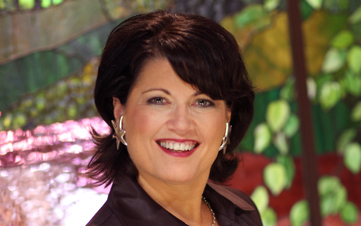
Jill Blashack Strahan
Age: 52
Occupation: Founder and CEO, Tastefully Simple
Advice to young entrepreneurs: \"Having goals is absolutely critical.\"
For Strahan, starting her multimillion-dollar company, Tastefully Simple, a direct sales retailer of specialty food products, began with “a dream and a shoestring.” She grew up on a dairy farm in Minnesota and later started selling gourmet food baskets, which inspired her business.
In the beginning, the entrepreneur fed her fledgling company with $6,000 of her own savings and some loans from a friend and the Small Business Administration. Strahan’s first headquarters was a 1,200-square-foot space with a concrete floor and no running water. Early orders were packed on a pool table. Today, the Tastefully Simple offices take up nearly 200,000 square feet on a 79-acre lot.
In addition to running a company that’s valued at more than $100 million, Strahan finds time to give back to the community. Tastefully Simple has donated more than $5 million to local causes, and in 2009 teamed up with Share Our Strength, a group that seeks to end childhood hunger in America. If you’re an entrepreneur with a good idea, she says to remember that there isn’t an easy road to building a profitable business: “The secret to success doesn’t involve pixie dust or a magic bullet. Having goals is absolutely critical.”
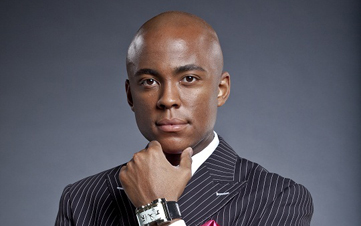
Farrah Gray
Age: 27
Occupation: Founder and CEO, Farrah Gray Publishing
Advice to young entrepreneurs: \"Keep your business small . . . niche yourself.\"
When most 6-year-olds were worried about what time their favorite cartoon came on TV, Gray was already an entrepreneur. He was going door-to-door in his inner-city Chicago neighborhood selling hand-painted rocks as bookends to help his ailing mother make ends meet. “I can remember being very young and my mom having a heart attack. I wondered how we were going to pay the bills and thought to myself, ‘I don’t want to be poor like this anymore,’” he recalls.
Trying to figure out a way to improve his family’s home life sparked something big: By the time he was 17, Gray had founded and operated several businesses, including Kidztel, a prepaid phone card company, and Farr-Out Foods, a food company targeting young adults, which grossed $1.5 million in sales before he sold it. At 20, his first book, “Reallionaire: Nine Steps to Becoming Rich Inside and Out,” was published.
Now, Gray’s focused on his latest venture, Farrah Gray Publishing, a boutique celebrity book publishing house he started in 2009, which includes titles such as “Transparent” by CNN’s Don Lemon. Gray also spends his time contributing to charitable organizations, such as the National Coalition for the Homeless and the National Marrow Donor Program. For anyone considering starting a new business, he suggests keeping things small: “A lot of times we get caught up in trying to be the next Facebook or Apple. That isn’t necessary -- niche yourself.”
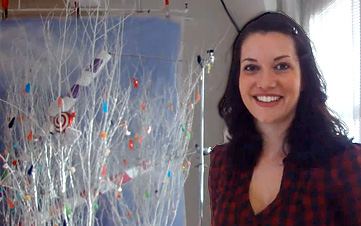
Jesse Conners
Age: 28
Occupation: CEO and founder, PeppermintPark.com
Advice to young entrepreneurs: \"There is constantly some fire that you have to put out . . . Don\'t let it discourage you.\"
Conners had an unusual childhood: When she was 9, her parents joined a cult and -- believing that the world was about to end -- sold all of their worldly possessions. From then until she was 18, Conners traveled across the U.S. and to Mexico with her family, following the cult’s message and searching for work along the way. As unconventional as it was, she says her upbringing spurred the independence she needed to succeed in business.
While in high school, she started doing the marketing for her father’s chiropractor practice, which eventually led to a job in real estate. At 21, she auditioned for and was cast in the first season of NBC’s “The Apprentice.” Although Conners didn’t win, her stint on national television landed her a job on the real estate speaking circuit. In 2008, she began building PeppermintPark.com, a membership-based fashion and luxury brand online retailer. The Web site has been up and running for a little over a year and has a ten-person staff.
Earlier this year, Conners’s “outside the box” approach to business helped her to surpass a $1 million net worth. In addition to running her company, she has offered charitable support to Elephant Human Relations Aid and provides resources to women who are victims of domestic abuse, according to her Web site. Conners advises budding entrepreneurs to be aware that daily obstacles are the norm, not the exception. “There is constantly some fire that you have to put out. That’s what running a business is all about,” Conners says. “Don’t let it discourage you. Try again, start again.”

Profit and prosper with the best of Kiplinger's advice on investing, taxes, retirement, personal finance and much more. Delivered daily. Enter your email in the box and click Sign Me Up.

Browne Taylor joined Kiplinger in 2011 and was a channel editor for Kiplinger.com covering living and family finance topics. She previously worked at the Washington Post as a Web producer in the Style section and prior to that covered the Jobs, Cars and Real Estate sections. She earned a BA in journalism from Howard University in Washington, D.C. She is Director of Member Services, at the National Association of Home Builders.
-
 Ask the Tax Editor: Federal Income Tax Deductions
Ask the Tax Editor: Federal Income Tax DeductionsAsk the Editor In this week's Ask the Editor Q&A, Joy Taylor answers questions on federal income tax deductions
-
 States With No-Fault Car Insurance Laws (and How No-Fault Car Insurance Works)
States With No-Fault Car Insurance Laws (and How No-Fault Car Insurance Works)A breakdown of the confusing rules around no-fault car insurance in every state where it exists.
-
 7 Frugal Habits to Keep Even When You're Rich
7 Frugal Habits to Keep Even When You're RichSome frugal habits are worth it, no matter what tax bracket you're in.
-
 What to Do With Your Tax Refund: 6 Ways to Bring Growth
What to Do With Your Tax Refund: 6 Ways to Bring GrowthUse your 2024 tax refund to boost short-term or long-term financial goals by putting it in one of these six places.
-
 What Does Medicare Not Cover? Eight Things You Should Know
What Does Medicare Not Cover? Eight Things You Should KnowMedicare Part A and Part B leave gaps in your healthcare coverage. But Medicare Advantage has problems, too.
-
 15 Reasons You'll Regret an RV in Retirement
15 Reasons You'll Regret an RV in RetirementMaking Your Money Last Here's why you might regret an RV in retirement. RV-savvy retirees talk about the downsides of spending retirement in a motorhome, travel trailer, fifth wheel, or other recreational vehicle.
-
 The Six Best Places to Retire in New England
The Six Best Places to Retire in New Englandplaces to live Thinking about a move to New England for retirement? Here are the best places to land for quality of life, affordability and other criteria.
-
 The 10 Cheapest Countries to Visit
The 10 Cheapest Countries to VisitWe find the 10 cheapest countries to visit around the world. Forget inflation and set your sights on your next vacation.
-
 15 Ways to Prepare Your Home for Winter
15 Ways to Prepare Your Home for Winterhome There are many ways to prepare your home for winter, which will help keep you safe and warm and save on housing and utility costs.
-
 Six Steps to Get Lower Car Insurance Rates
Six Steps to Get Lower Car Insurance Ratesinsurance Shopping around for auto insurance may not be your idea of fun, but comparing prices for a new policy every few years — or even more often — can pay off big.
-
 How to Increase Credit Scores — Fast
How to Increase Credit Scores — FastHow to increase credit scores quickly, starting with paying down your credit card debt.


